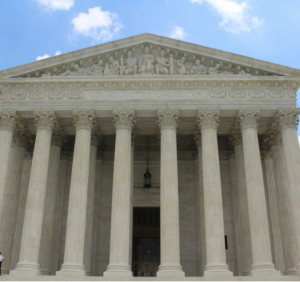Tragedy Does not Discriminate.
It can happen to a person of any age, race, gender, socioeconomic status, background, occupation, or location. It can come in the form of an automobile accident, a birth trauma, a malfunctioning product, or a medical emergency, just to name a few possibilities. Tragedy can happen anywhere, at any time. Often times, you may hear it described as a “freak accident.”
So what do you do when you or your family encounters a catastrophic personal injury? Aside from seeking mental and emotional respite, you might seek justice. In the U.S., this comes in the form of a lawsuit. You hire an attorney and enter into litigation against whomever wronged you, and then you wait. And wait. And wait.
Lawsuits can take months, even years, to settle. And this is where insult gets added to injury, literally. Most plaintiffs who are pursuing litigation are out of work due to their tragic accident, and they have little to no income. Yet, they are expected to continue to meet their own living expenses and the expenses of their families. This includes rent, transportation, utility bills, food, and other day-to-day costs.
If you are someone who already struggles to make ends meet, this period of time in limbo while you pursue justice can be torture. Especially when you consider that catastrophic accidents can turn an entire world upside down in the blink of an eye. There are currently hundreds of thousands of plaintiffs who have had their lives suddenly and drastically altered, are enduring economic hardship, and are wondering what they can possibly do to go on.
You may ask: why don’t they just drop their lawsuit? Well, every human deserves access to justice, not just the wealthy. Frequently, personal injury cases can fall into a David and Goliath storyline – an elderly woman versus a powerful corporation that has produced defective metal hip implants, a middle-aged father against a pharmaceutical company whose drug has unidentified side effects that are ruining his health, a young veteran challenging a major manufacturer for an incorrectly-assembled product that left him a quadriplegic, a mother versus an esteemed medical facility who failed to properly care for her newborn, resulting in lifelong developmental disabilities. These individuals deserve the right to pursue litigation, no matter how long it may take and how much it may cost. If they cannot afford to provide for themselves and their families in this time, they may be forced to drop their lawsuit or accept a much lower settlement offer than they are entitled to. That means letting Goliath win.
Enter the non-recourse lending industry. Plaintiffs enduring economic hardship often turn to lending companies that provide pre-settlement loans to help with their expenses. Non-recourse means that if a person does not end up receiving a settlement, they do not have to pay back the advance. To cover the risk they’re taking on, and to make money, for-profit lawsuit lenders will charge usurious interest rates on the advances they give out. Interest rates range from 50 to 180 percent on these advances that are often crucial for individuals awaiting settlement. It is not uncommon for someone to have to pay back more than double the amount they originally borrowed. Many companies in this industry blatantly exploit people who are stuck between a rock and a hard place.
Now you may ask: how can they do this? Well, the non-recourse lending industry is not federally regulated, and most states do not have any regulations or guidelines in place either. Basically, for-profit entities can charge whatever kind of compound interest rates they’d like. And those who need the money end up taking it now and regretting it later.
There is one new organization in the industry, and it is the only not-for-profit organization that provides advances only to plaintiffs. The Bairs Foundation was created to be a compassionate alternative for individuals and families who are struggling to make ends meet during litigation. Since they are not looking to make a profit, the Bairs Foundation charges low simple interest rates, and any interest accrued goes back into the pool of funding that can be provided to help future cases.
The current non-recourse lending industry is in need of a calling out and a shaking up. This not-for-profit foundation is looking to prove that there can be a successful model of funding for litigation that does not involve ripping off individuals. If federal and state governments will not do anything to prevent this abuse, it falls on all members of the civil justice system to bring about awareness and change.
It is unfair to exploit families who are struggling with a catastrophic and often life-changing event, who are going through the challenges of the justice system, and who are just trying to keep it all together. And while this issue may not be relevant to you today, as mentioned at the onset, you never know when it may be. Encouraging conversation, building awareness, and showing compassion is critical to enhancing access to justice for all.
Rachel Mathews is executive director of the Bairs Foundation
